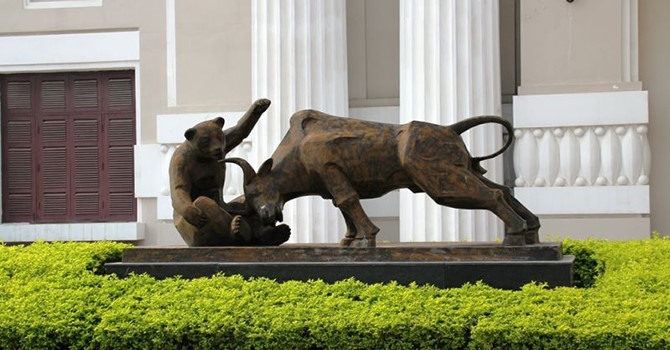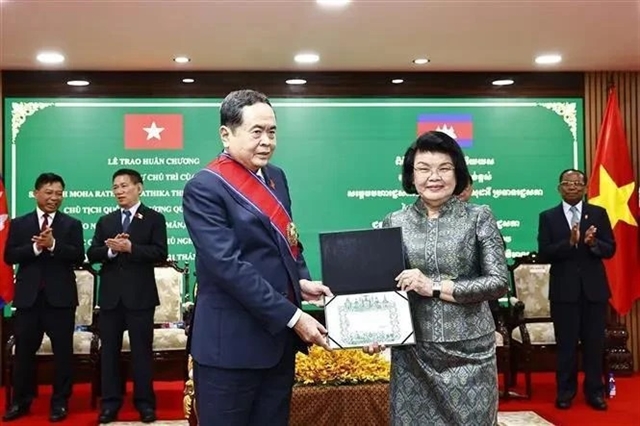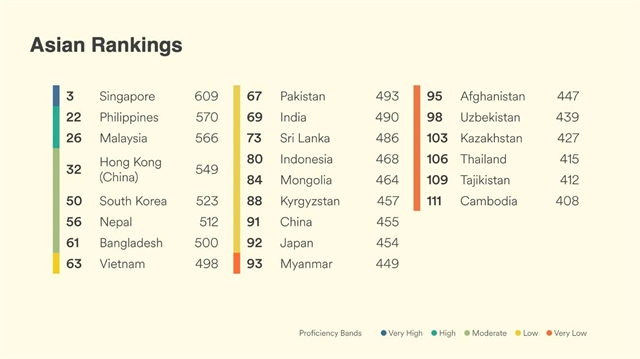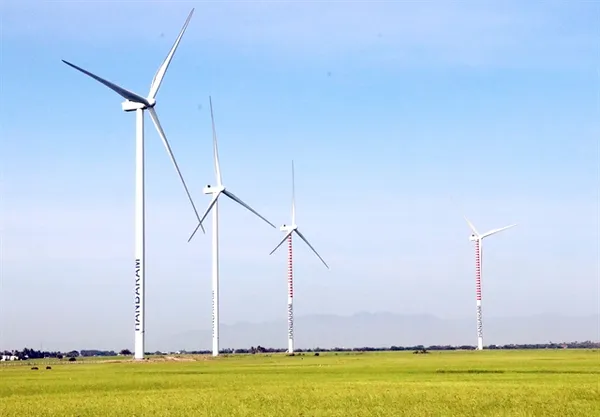 Economy
Economy

Volatility on Việt
 |
| Vietnamese shares are trading at low prices compared to other ASEAN countries with the average price-to-book (PB) ratio of 1.4 and the price-earnings (P/E) ratio of 17. — Photo bizlive.vn |
HÀ NỘI — Volatility on Việt
Việt
Since its highest record of 1,204 points on April 9 this year, the VN-Index lost 20 per cent by May 25, closing this week at 963.9 points.
In line with the market downtrend, Pyn Elite Fund, the
The net asset value (NAV) of Pyn Elite Fund as of May 15 decreased 0.2 per cent against last month, reaching 315.82 euros. Its assets under management were 436 million euros (US$510 million). In April, it also witnessed a monthly decrease of 1.5 per cent.
Investments causing the biggest losses for the fund included mobile retailer Mobile World Group (MWG) with a loss of 11.4 million euros; HCM City Infrastructure Investment JSC (CII), 4 million euros; Tasco JSC (HUT), 3.81 million euros; and Hòa Bình Construction Group JSC (HBC), 3.2 million euros.
Meanwhile, profitable shares were PAN Group (PAN), which earned the fund 10.1 million euros since the beginning of this year, followed by TPBank and Khang Điền House Trading and Investment JSC (KDH), each gaining over six million euros.
According to Pyn Elite Fund, Vietnamese shares are trading at low prices compared to other ASEAN countries, with the average price-to-book (PB) ratio of 1.4 and the price-earnings (P/E) ratio of 17.
The story is much the same at other funds of leading investment management companies such as Dragon Capital and VinaCapital.
Vietnam Enterprise Investment Limited (VEIL), the biggest fund under the management of Dragon Capital, recorded its yearly profit of just 6.94 per cent with NAV of over $1.66 billion as of May 17.
This number was much lower than the 19 per cent growth seen on April 5, which meant the fund lost over 12 per cent of its profit since the start of the year.
VEIL’s investments focused on large-cap stocks such as Military Bank (MBB), Asia Commercial Bank (ACB), Mobile World Group, Vinamilk (VNM), PV Gas (GAS), Hòa Phát Group (HPG) and FPT Corp (FPT), which have all plunged in the recent downtrend.
ACB and MBB, two of the three stocks which made up the highest proportion of the fund’s portfolio, slumped 14.9 per cent and 17.1 per cent, respectively in the past month. MWG decreased only 4 per cent in one month but has lost 21 per cent since the beginning of the year.
Meanwhile, VinaCapital Vietnam Opportunity Fund (VOF) witnessed a monthly decrease of 5.7 per cent by the end of April, reaching more than $1.12 billion. It was a bad result compared with a three-month profit of 11.2 per cent by March-end.
According to VinaCapital, the market downtrend in the past months may stem from profit taking led by institutional investors, after the VN-Index gained 22 per cent in the first quarter and peaked at 1,204 in early April.
“Nevertheless, market fundamentals remain solid with strong earnings growth and long-term economic growth driven by resilient consumer confidence – the current market correction poses an opportunity for selective buying,” the fund wrote in a market commentary this week.
It also noted the possible impact of US-China trade war, general outflow from emerging markets by global investors due to the stronger US dollar and higher long-term rates on the Vietnamese securities market. — VNS









